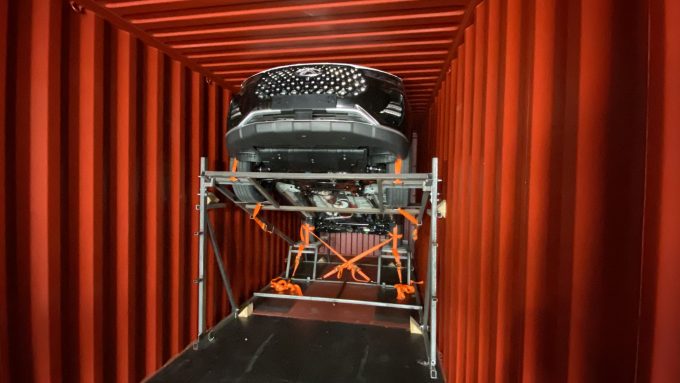EU shippers fear for business as their boxes stack up in Russia
While trade sanctions against Russia following its invasion of Ukraine in 2022 have been well-documented, ...

With China’s domestic ro-ro capacity unable to match the deluge of its car exports, DP World has implemented a new method of stacking cars, three-to-a-container, in order to meet demand at Yarimca, Turkey.
Traditionally, cars in containers are limited to two per teu, or four in a 40ft, but DP World Yarimca claims to have brought down the cost of car imports by using racking to increase the number of slots.
It has effectively “allowed DP World to create a new car import terminal ...
Asia-USEC shippers to lose 42% capacity in a surge of blanked sailings
Why ROI is driving a shift to smart reefer containers
USTR fees will lead to 'complete destabilisation' of container shipping alliances
New USTR port fees threaten shipping and global supply chains, says Cosco
Outlook for container shipping 'more uncertain now than at the onset of Covid'
Transpac container service closures mount
DHL Express suspends non-de minimis B2C parcels to US consumers

Comment on this article